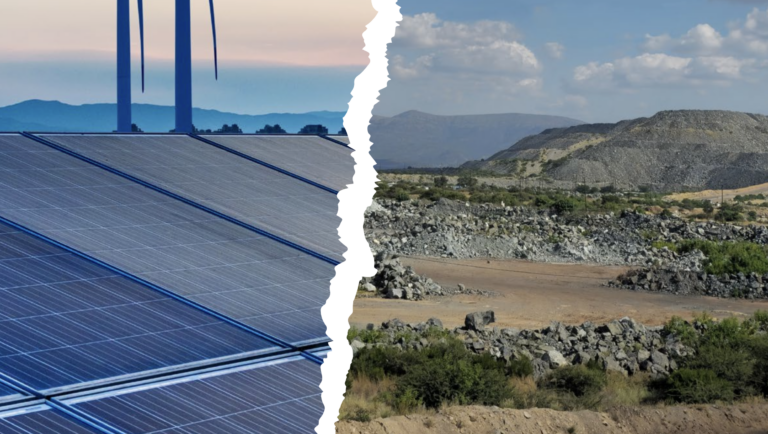
Selling out the Niger Delta
The sale of Shell’s Nigerian subsidiary and implications for legacy oil pollution
Last week, Shell announced that it was selling its Nigerian subsidiary SPDC (the Shell Petroleum Development Company of Nigeria) to a newly set-up consortium called Renaissance Africa Energy Company(opens in new window) . The sale of SPDC is momentous. For decades, Shell’s wholly-owned Nigerian subsidiary has dominated onshore oil extraction in the Niger Delta, as well as the lives of the hundreds of thousands of people who live in and around the oil fields. The region is synonymous with the company and the unparalleled environmental devastation it has caused. The Niger Delta is frequently described as one of the most oil-polluted regions on Earth(opens in new window) .
The biggest question for activists and oil-impacted communities in Nigeria is: what will happen to all the legacy oil pollution? Can we still hold Shell accountable? Can we still get justice?
The answer, unsurprisingly, is not a clear-cut yes or no. It is, yes, maybe, maybe not.
What is Shell selling?
Shell Plc, the parent company, is selling all its shares in SPDC. However, SPDC will continue to exist after the share sale. In a share sale, the buyer purchases shares in the company rather than just the assets. The transaction is between the company’s shareholders (in this case, Shell Plc) and the buyer of the shares (Renaissance). By purchasing all the shares in SPDC, Renaissance has purchased the company, which is a separate legal entity. The company, SPDC, continues to exist and would retain its assets and liabilities.
So, the answer to whether you can sue SPDC for past oil spills is yes. But the company will not be SPDC as we now know it. It will be fully owned by Renaissance. It will thus be a Nigerian company owned by another Nigerian company, with no connection to the international oil company Shell Plc.
One can imagine that SPDC will be renamed or merged with Renaissance at some point after the completion of the current deal. The company can hardly continue to have the name ‘Shell Petroleum Development Company of Nigeria’ when Shell Plc does not have any stake in it. If, in the future, SPDC ceases to exist and is incorporated or absorbed into another company, the acquiring company, as the successor of the wrongdoer, inherits the liability and can be sued.
In Brief
- SPDC’s owners (shareholders) – Shell Plc and Shell NV – are selling their shares in SPDC without dissolving the company.
- SPDC’s new owner (shareholder) is Renaissance.
- SPDC will continue to exist as SPDC but under new ownership.
- The SPDC that continues to exist will not be a subsidiary of Shell Plc.
Possibilities for legal action
These developments are worrying because legal action against the future Nigerian-owned SPDC is only likely to be possible in Nigeria. In the past, Nigerian plaintiffs have resorted to foreign courts in Shell’s home states (the UK and the Netherlands) to seek compensation for oil spill damage caused by Shell’s operations in the Niger Delta because it is near impossible to bring legal action against oil companies in Nigeria. The few cases that surmount the financial and bureaucratic hurdles drag on for years, and the international oil companies have shown they are willing to ignore Nigerian court rulings if they disagree with them.
But there is a spark of hope here. Legal actions have also been brought against Shell Plc as the parent company in foreign courts, and some of those legal actions are based on Shell Plc’s direct responsibility for oil spills and harms in the Niger Delta. Such legal actions may be able to continue for past oil spills, even after the sale of SPDC to Renaissance.
Two such claims are ongoing against Shell in the UK over oil spills at Ogale and Bille(opens in new window) . The legal basis for such actions would have to be carefully evidenced. The practical challenges will doubtless be even greater than is currently the case, but a door is still open to try and make the oil major pay for decades of damage done in the Niger Delta.
Need of the hour: responsible divestment for a just energy transition
These are issues for the future. Right now, activists are looking at all options to stop the sale or make it conditional upon proper clean-up and compensation. Environmental and social activists(opens in new window) in the Niger Delta have called on the federal government to “immediately place a moratorium on all oil company divestment (or sale of assets) … pending the ascertaining of issues of community concern.” This follows the launch, in December 2023, of the National Principles for Responsible Petroleum Industry Divestment(opens in new window) , a Nigerian civil society initiative that anticipated the current development.
The way in which Shell leaves the Niger Delta is vitally important for the hundreds of thousands of people living there. But it also has a wider resonance. The way fossil fuel companies, especially big oil multinationals like Shell, divest and exit oil production is critical to a just energy transition. If the people who suffered the abuses of the fossil fuel era are left with those abuses unremediated, there will be nothing just about the transition.
Download the briefing for legal action against Shell in Nigeria below.
Do you need more information?
-

Audrey Gaughran
Executive Director
Related news
-
 The Counter: strengthening the fight for climate justice around the worldPosted in category:Long read
The Counter: strengthening the fight for climate justice around the worldPosted in category:Long read Luis ScungioPublished on:
Luis ScungioPublished on: -
The hidden harm of green hydrogen Published on:
 Ilona HartliefPosted in category:Publication
Ilona HartliefPosted in category:Publication Ilona Hartlief
Ilona Hartlief
-
 ExxonMobil sues the Netherlands over gas field closurePosted in category:News
ExxonMobil sues the Netherlands over gas field closurePosted in category:News Bart-Jaap VerbeekPublished on:
Bart-Jaap VerbeekPublished on:


